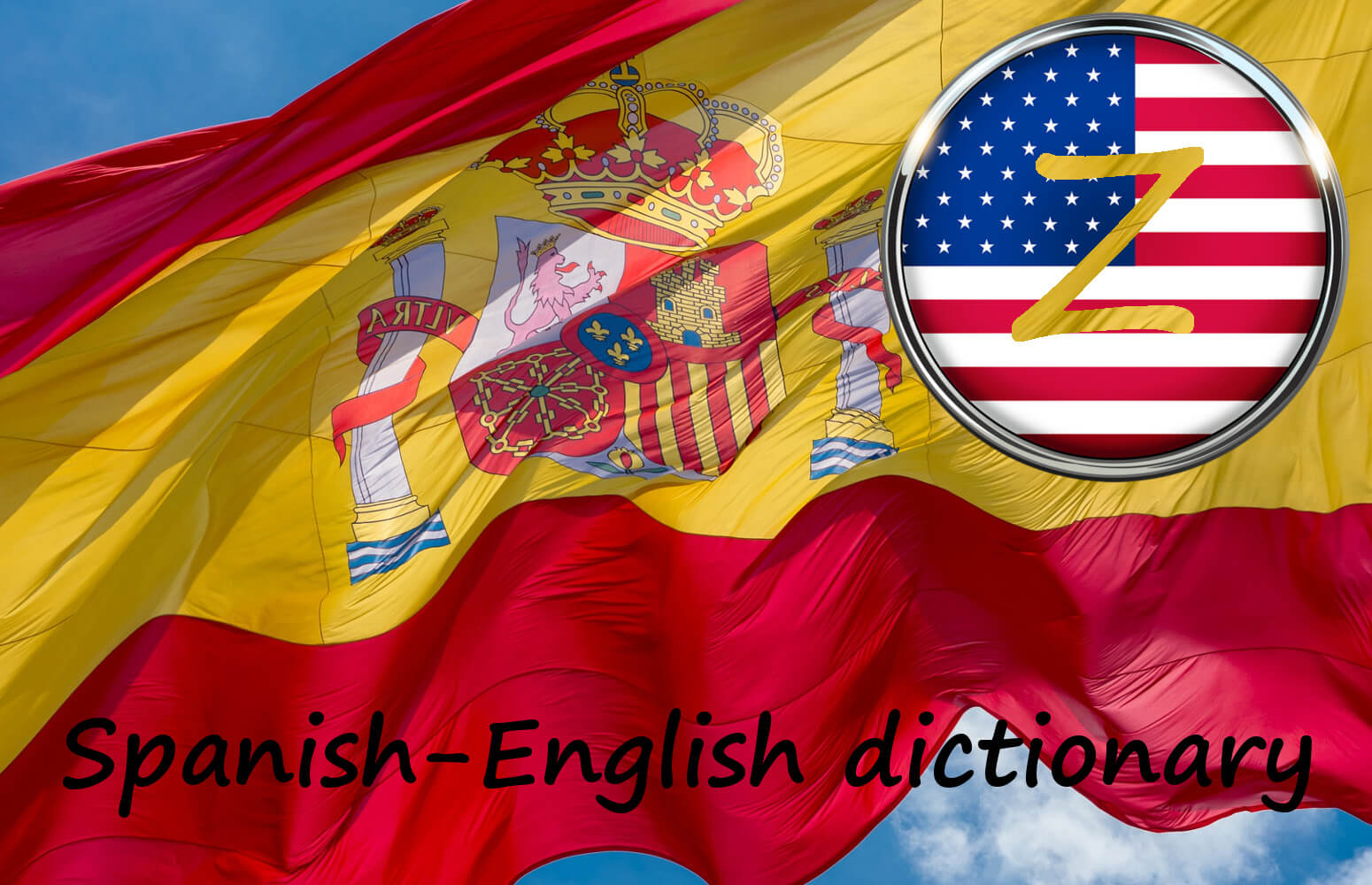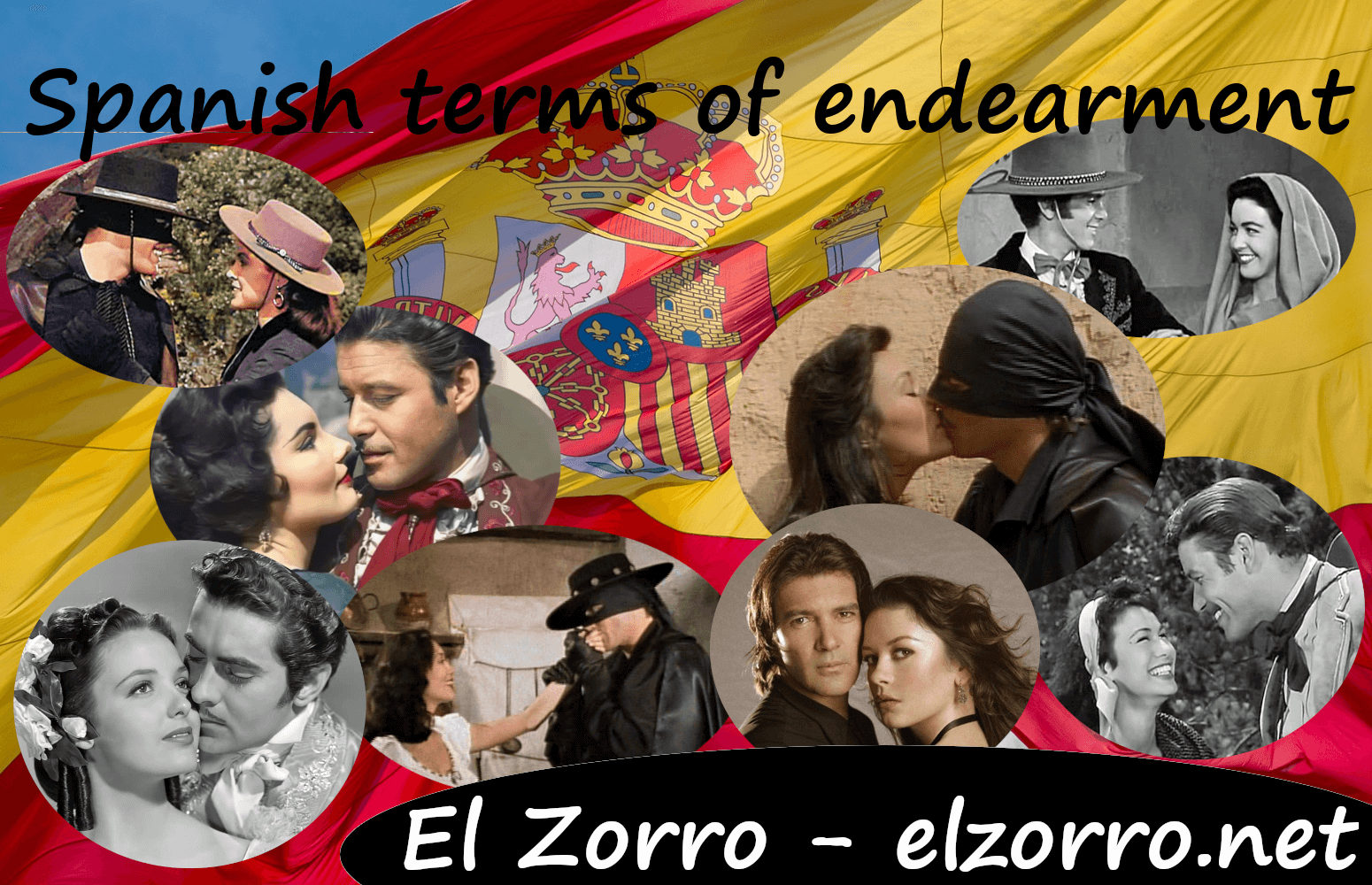Spanish-English dictionary
The Spanish-English dictionary can be useful because, regardless of the language in which the authors of fanfics write their stories, they often use original Spanish inserts. They have appeared in the Zorro fandom from the beginning, from the very first Johnston McCulley stories. That is why we present the most popular ones:
Spanish-English dictionary Zorro A-C
abuela —grandmother
abuelo — grandfather
adios – goodbye
albondigas – meatballs
alcalde – mayor
Alejandro – Alexander
amigo / amiga – friend
angeles – angels
arroyo – a canyon or ravine
arroz – rice
atencion – attention
bonita – beautiful
buenas noches – good night
buenas tardes – good afternoon
bueno / buenos – good
buenos dias – good morning (from morning or all day)
caballero – gentleman, knight. Initially used in the context of chivalry, in the nineteenth century the term implies a certain social (noble) status or / and is given to “persons above the rank of ordinary merchants when their manners indicate a degree of sophistication and intelligence” (Encyclopedia Britannica 1845 and 1856)
callarse – be quiet
capitan – captain, military rank between lieutenant and major, usually commander of an infantry company or cavalry squadron
cerdo – pig
chica – little girl
chico – little boy
ciudad – city or town
commnedante – commandant
compadre – companion
comprende – understand
con – with
con permiso – with permission (request to leave the society)
corazon – heart eg mi corazon – my heart as a caressing term for a loved one
cuartel – garrison
cumpleaños – birthday
Spanish-English dictionary Zorro D-N
delicioso – delicious tasteful
dia – day
diablo – the devil
Diego – Jacob
Dios – God
Dios mio – my God
don / doña – title used in Spain, Portugal and Italy with colonies. It only comes with a first name. Initially reserved for the royal and princely families, it was widely used by nobles and clergy in Zorro’s time.
dulce – sweetness, sweets, an affectionate term used for spouses or close family members
esquina – the horn
Felipe – Philip
feliz – happy or cheerful
fiesta – festival
fin – end
frijoles – beans
gracias – thank you
hacienda – ranch, a large farm, plantation or a country estate in Spain or Latin America. The term may refer to the property as a whole or the buildings themselves.
haciendado – ranch owner
hasta luego – see you later
hermana – sister
hermano – brother
hija – daughter
hijo – son
hola – hello
huevos – eggs
Jaime – Jacob
loco – crazy
madre – mother
Madre de Dios – Mother of God
mercado – the market square
mi – my e.g. mi hijo – my son
miles – a thousand, for example, miles gracias – thanks a thousand times
muchacha – girl
muchacho – boy
muchas – many, very much eg muchas gracias – thank you very much
muy – very much eg muy bien – very good
nada – nothing, e.g. de nada – you are welcome
niña – baby, little child, girl
niño – baby, toddler, boy
noche – nothing
Spanish-English dictionary Zorro P-Z
padre – father or priest, monk
paz – peace
peon – peasant, farmer, a farm labourer in the Spanish colonies of America
permiso – permission
pollo – chicken
por favor – please eg give me your sword, por favor.
preciosa – precious, e.g. mi preciosa – my precious, caressing term for a beloved woman
pueblo – town or village
querido / querida – loved or beloved
rebozo – a large scarf that can cover the head and shoulders, has a multifunctional use – from covering the hair in the church, through sun protection, to a baby carrier and carrying luggage
roto – broken
hall – living room
san / santa – saint
señor – mister
señora – madam
señorita – young lady, polite expression
si – yes
siesta – siesta, afternoon rest
silencio – silence
sueño – dream, dream
tarde – afternoon
te amo – I love you
vamonos – let’s go
vaquero – cowboy, farm labourer dealing with cattle breeding. In Argentina, Uruguay and Brazil it is called gaucho, in Mexico it is called charros or cowboys.
vaya con Dios – go with God
vega – meadow
verdad – true
Zorra – a vulgar term for prostitute
zorrito – a little fox
Zorro – Fox


